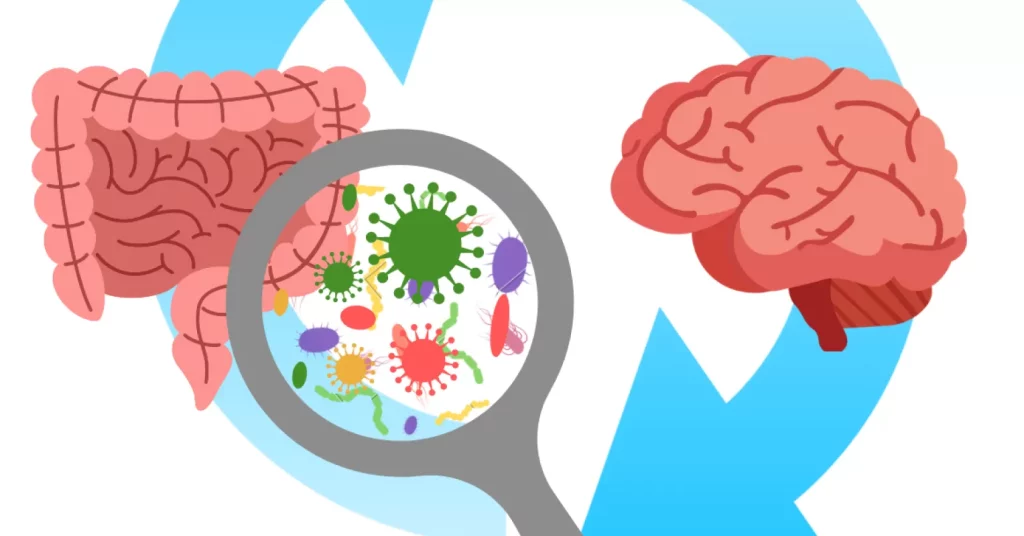Introduction: Beyond Butterflies—Understanding the Gut Feeling
We’ve all had moments when a “gut feeling” steered us toward or away from something long before logic caught up. Whether it’s an uneasy churn before a tough decision or an inexplicable sense of comfort in someone’s presence, these visceral experiences often defy explanation. For centuries, gut instincts were chalked up to mysticism or intuition. But recent advances in neuroscience and psychobiology suggest that our gut feelings may actually be grounded in something far more scientific: the gut-brain axis. This bidirectional communication network between our digestive system and our central nervous system is increasingly recognized as playing a key role in our emotional landscape, intuitive decision-making, and overall mental health. In this article, we explore the science behind the gut-brain connection, the concept of interoceptive awareness, and actionable ways to enhance this often-overlooked form of emotional intelligence.
The Gut-Brain Axis: A Two-Way Conversation
The gut-brain axis is a complex communication system involving the central nervous system, the enteric nervous system (often dubbed the “second brain”), the vagus nerve, and the microbiota residing in the gastrointestinal tract. This system enables real-time dialogue between our brain and our gut, transmitting chemical, hormonal, and neural messages that shape mood, emotion, and even cognition. Approximately 90% of the body’s serotonin—a neurotransmitter closely associated with happiness and well-being—is produced in the gut. Moreover, the vagus nerve acts as a highway, carrying sensory information from the intestines to the brain and back, thereby influencing stress responses, emotional reactivity, and intuitive processing. Essentially, the gut doesn’t just digest food—it digests emotional stimuli as well.
Emotional Decision-Making and the Role of Interoception
Interoception is the internal sense that allows us to perceive physiological states within our body—heartbeat, hunger, temperature, and yes, gut sensations. It is through interoception that we interpret and assign meaning to these sensations, enabling us to understand emotions on a somatic level. Research has shown that people with higher interoceptive awareness tend to be more emotionally resilient, more empathetic, and better at making decisions under pressure. This bodily awareness gives us access to a form of “emotional data” that operates beneath conscious thought—an intuitive intelligence that integrates the brain and body. Studies in neuroeconomics and psychology suggest that gut feelings, particularly in emotionally charged scenarios, often lead to faster and more accurate decisions than prolonged analytical deliberation.
How Microbiota Influence Mood and Emotion
Our gut is home to trillions of microbes that play a fundamental role in regulating mood and emotion. These microorganisms produce neurotransmitters like dopamine, serotonin, and gamma-aminobutyric acid (GABA), all of which influence the brain’s emotional circuits. Dysbiosis—an imbalance in gut bacteria—has been linked to anxiety, depression, and even neurodevelopmental disorders. On the flip side, a diverse and healthy gut microbiome is associated with greater emotional stability and cognitive flexibility. The burgeoning field of nutritional psychiatry emphasizes diet as a modifiable factor in mental health, advocating for probiotics, prebiotics, and fiber-rich foods to support gut-brain harmony. When your gut is balanced, the messages it sends to your brain tend to be clearer and more trustworthy.

Gut Feelings and the Science of Intuition
Intuition, long considered a mystical or irrational process, is now being understood as a rapid, subconscious integration of sensory and emotional information. Neuroscientific research using fMRI and other imaging techniques has shown that intuitive decisions activate both the limbic system and the insular cortex—regions involved in emotion, body awareness, and interoception. This supports the idea that intuitive insight is not simply guesswork but a biologically encoded process. Interestingly, people who are more attuned to their gut sensations and other interoceptive signals tend to perform better in tasks requiring emotional intelligence, such as reading social cues or navigating conflict. These findings suggest that cultivating gut awareness can enhance not only personal decision-making but also interpersonal effectiveness.
Tips to Enhance Interoceptive Awareness and Gut Wisdom
- Practice Mindful Eating: Avoid distractions while eating. Pay attention to textures, flavors, and how your body feels before, during, and after meals. This strengthens the brain-gut link and helps you notice subtle digestive cues.
- Engage in Body Scans and Breathwork: Mindfulness practices like body scans can heighten your awareness of internal sensations, including those from the gut. Slow, diaphragmatic breathing stimulates the vagus nerve and promotes parasympathetic (rest-and-digest) activity.
- Keep a Gut-Emotion Journal: Track how different foods, moods, and environments affect your digestion and emotional state. Over time, patterns may emerge that can guide lifestyle and dietary choices.
- Nurture Your Microbiome: Incorporate fermented foods like yogurt, kefir, kimchi, and fiber-rich vegetables to maintain a healthy gut flora. Consider probiotics, especially during or after antibiotic use.
- Limit Digital Overload: Excessive screen time and digital multitasking can blunt interoceptive sensitivity. Schedule time for sensory downtime to recalibrate your internal awareness.
- Exercise Regularly: Physical movement, especially yoga and tai chi, enhances bodily awareness and improves gut motility. These activities also reduce stress hormones, which can disrupt gut-brain communication.
- Consult a Specialist: If you experience persistent gut issues or emotional difficulties, working with an integrative health practitioner can help identify underlying imbalances in your gut-brain axis.
Cultural and Historical Roots of Gut Wisdom
Ancient traditions have long recognized the gut as a seat of wisdom. Traditional Chinese Medicine links the spleen and stomach to emotional processes, while Ayurvedic texts describe the gut (agni) as the fire of perception and vitality. Even Western idioms—“trust your gut,” “gut-wrenching,” or “butterflies in the stomach”—reflect an intuitive understanding of the gut’s role in emotion. Modern science is now validating what ancient healers instinctively knew: that the gut is not merely a digestive organ but a crucial player in our psychological and emotional well-being. The convergence of these wisdom traditions with contemporary neuroscience opens up exciting new possibilities for holistic emotional care.
Future Directions: Toward Personalized Gut-Brain Health
As research into the gut-brain axis advances, we are entering an era of personalized psychobiotics—probiotic and dietary interventions tailored to an individual’s microbiome to optimize emotional health. Emerging wearable technologies may soon allow us to monitor gut activity in real-time, offering biofeedback to improve interoceptive awareness. Integrating gut-brain metrics into mental health diagnostics could revolutionize how we treat mood disorders, making interventions more precise and somatically informed. Moreover, education systems and workplaces are beginning to recognize the value of body-based emotional intelligence, incorporating mindfulness and somatic training into their wellness programs.
Conclusion: Trusting the Intelligence Within
Your gut feeling isn’t just superstition—it’s a biologically grounded signal from a sophisticated internal system that integrates body and mind. By enhancing your interoceptive awareness and nurturing your gut health, you can access a deeper layer of emotional wisdom that supports smarter decision-making, greater resilience, and more meaningful human connection. As science continues to unravel the complexities of the gut-brain dialogue, one thing becomes clear: the path to emotional clarity may start in the very center of your being.







































